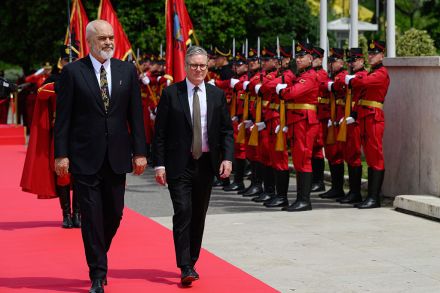Legal immigration is an absolute nightmare
A personal note this week, as 15 October 2025 marked an occasion of sorts: when my husband’s and my Portuguese residency permits expired. Isn’t that a bit sloppy, you might ask, allowing your permission to remain in a country where you live to lapse? On one party’s part, very sloppy, but not ours. At least a dozen people must have exclaimed to me: ‘Oh, I’ve thought about moving to Portugal!’ After emigrating from London in 2023, I’m not issuing a warning exactly. We don’t regret the move. Landscape gorgeous, food great, people nice, wine cheap. But this country is notoriously bureaucratic, and the paperwork side of playing Mother, May I?




















